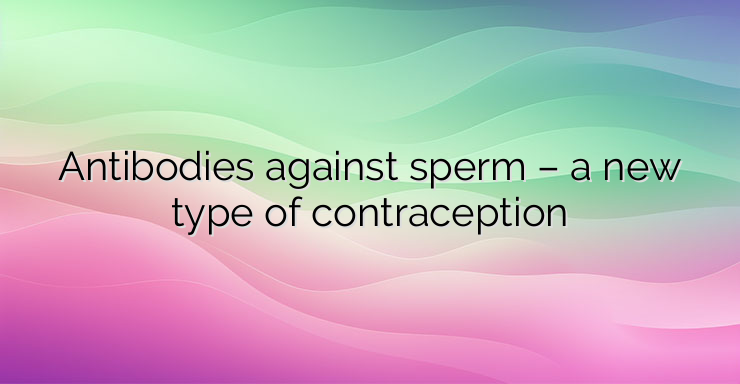A team of researchers found that the antibodies they developed were up to 99.9% effective at capturing human sperm. In their report published in the journal Science Translational Medicine, the scientists describe how they developed this type of specific and innovative birth control contraceptive as an alternative to hormonal forms of female contraception. Modern science has “given” women two main options for preventing unwanted pregnancy – mechanical, such as condoms or IUDs, and hormones, administered by injection or in the form of medication. But, as the researchers note, all such options have drawbacks that lead to various problems. So they are turning to a third type of alternative, which involves using antibodies. Previous research has shown that the presence of certain antibodies in the vagina can lead to infertility. Last year, scientists managed to obtain some of these antibodies, subsequently removing the antigen-binding components. They use these components to create an IgG antibody that shows a propensity to bind to sperm. After additional treatments, the resulting IgG antibodies were applied to sperm in a petri dish to determine if binding was present. The scientists found that the binding increased by up to 10 times compared to the “original” antibodies taken from the female volunteers. In the second part of their work, the researchers injected solutions containing their IgG antibodies into the vagina, but in animal models. This was followed by an injection of human sperm to see the effect of the antibodies, but in vivo. After only two minutes, they collected the samples again and counted the motile sperm accordingly. The results showed that with this method, 99.9% of the male gametes were associated compared to the control groups. The researchers note that more work is needed in this direction, related to additional research, to determine whether their technique can and is suitable for use in humans and thus become a third contraceptive method for women. For the team, it is important not only the result they achieved, but also the possibility of applying contraceptive methods that have greatly reduced or even absent side effects. Sources: https://stm.sciencemag.org/content/13/606/eabd5219


Leave a Reply